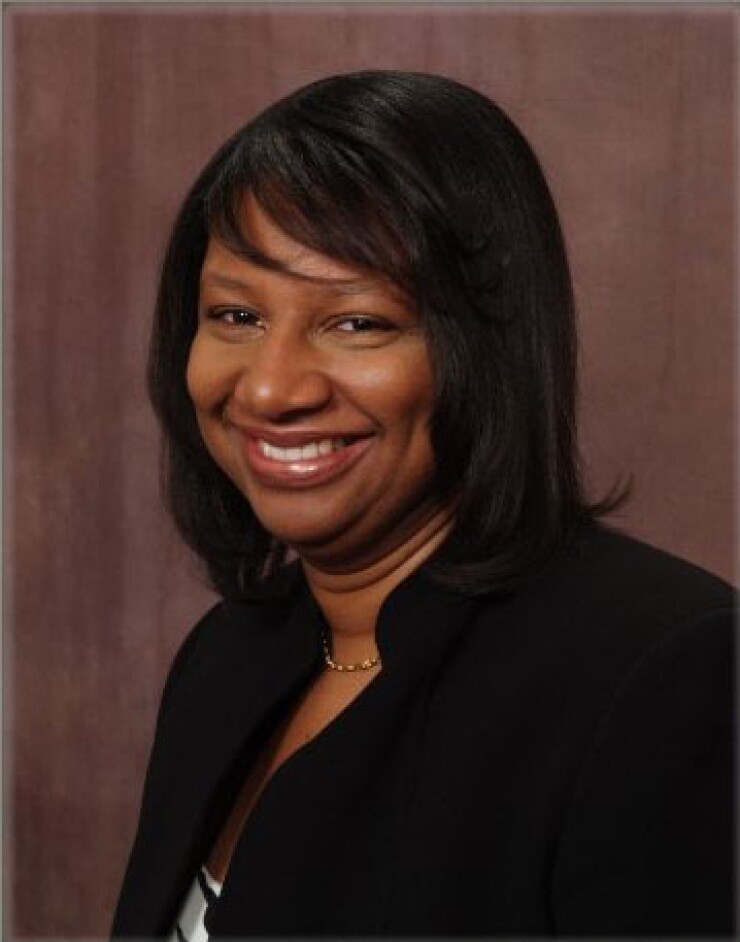For all the strides
According to the African-American Credit Union Coalition, less than 3 percent of credit union CEOs are African-American. That’s 165 CEOs out of approximately 5,686 credit unions as of August 2018 (the most recent data available). Of that 165 CEOs, 86 are female, but just 13 overall lead institutions with more than $100 million in assets, and only four hold assets of more than $1 billion.

“As the asset size increases, the less diversity you see in ethnicity and gender,” noted Pamela Owens, senior vice president of organizational development & capacity building at Inclusiv.
Part of the problem lies in that credit unions as an industry are increasingly diverse. A 2016 Federal Reserve study found African-Americans make up 14.9 percent of credit union members, compared to just 11.2 percent of bank clients.
Perhaps not surprisingly, credit union boards overseeing CEOs are also overwhelmingly white, and CU Journal has reported extensively on

Maurice Smith, one of the few black CEOs running a large credit union (the $2 billion-asset Local Government Federal Credit Union of Raleigh, N.C.), noted that this is only the first year AACUC has tracked the number of African-Americans in the corner office, making it difficult to determine long-term trends. But he downplayed the notion that African-Americans are under-represented as executives in the industry. While less than 3 percent of credit unions have black CEOs and African-Americans account for about 14 percent of the U.S. population, Smith indicated the situation is more complex than these numbers would suggest.
“CEOs don’t just appear from thin air,” he said, adding that most executives occupy a variety of roles before they take the top job. “To get a more complete picture of the opportunities African-Americans have for promotion to the CEO seat, one must look at the composition of the C-suites for many organizations.”
And it’s not as though credit unions are the only industry with a dearth of diversity in the executive suite. According to Fortune magazine, just three Fortune 500 companies had black CEOs in 2018 – half of where things stood in 2012. Similarly, 24 of those companies had female CEOs, though that was down from a peak of 32 in 2017.
Forge a new career path?
So how can credit unions solve this problem? Part of the solution may lie in raising consumer awareness of the industry.
“So few people understand the importance of credit unions in our society and I feel this is especially true in the African-American community,” said Owens. ”You often hear younger people say they want to go into banking but they are not thinking of credit unions. I think we must go a better job at recruiting a diverse talent pool to our institutions. We must show credit unions as a career path.”

Erin L. Thomas, a partner at Paradigm, diversity and inclusion strategy firm, said credit unions “should audit and update talent processes and practices to be standardized, structured and culturally inclusive. These efforts will help increase the representation of blacks in leadership and level the playing field for leaders of all backgrounds.”

Karen Madry, CEO at $62 million-asset Afena FCU in Marion, Ind., came to the credit union movement from the bank industry, and despite having switched careers from banking, she nonetheless believes that the best way for credit unions to develop more black executives is to train them from within.
“I don’t think that boards of directors at credit unions are necessarily seeking to hire black CEOs, but rather the most qualified CEOs,” she said. “But credit unions can cultivate African-Americans and give them the skills needed to eventually become CEO candidates. If they grow up in the industry and work at multiple jobs they can learn all facets of it and become executives.”
Fewer opportunities ahead?
Regardless of what individual institutions to do increase diversity in the C-suite, various macroeconomic factors may limit progress. With the credit union industry continuing to consolidate by about 3 percent each year,
“There is a lot of pressure on small credit unions just to survive in this marketplace,” she said. “If they keep disappearing, that could lead to a shrinkage in the number of African-American CEOs in the coming years.”
Dennis Dollar, a credit union consultant and former NCUA chairman, is more hopeful. He said that based his experience working with larger credit union clients, there is “undoubtedly a major and consistent effort” to promote diversity in the executive ranks.
“It is from that diversity the future CEOs will come, and I am seeing more women and more African-Americans on the short list for CEO and [executive vice president] slots, other senior promotions and in credit union executive development initiatives,” he added.
Deedee Myers, chief executive officer at executive recruitment firm DDJ Myers, Ltd., noted that some credit union groups are already putting programs in place to recruit, train and develop a more diverse executive team. She cited, for example, the “Emerging Leaders” program sponsored by the Northwest Credit Union Association.
“As an industry, we need to be strategically pro-active to engage with diverse ‘double outsiders’ who are neither white nor men,” Myers added.
For his part, Maurice Smith is bullish on the future for African-Americans in the movement.
“African-American professionals have found wild success and satisfaction by serving their membership in a variety of positions,” he said. “One should realize that the influence of a savvy, broad-minded chief financial officer can influence a credit union’s strategies in extraordinary ways. It would be a mistake to discount the contributions of African-Americans who make a difference every day in myriad ways at credit unions.”





